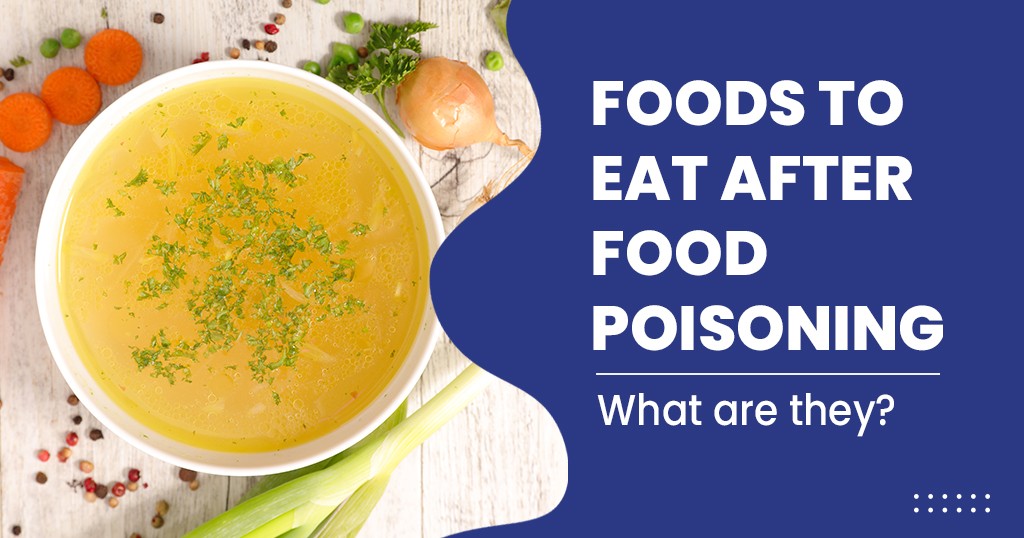WHAT CAN YOU EAT AFTER FOOD POISONING?

What can I eat once I feel sick? may be a question you have if you have lately had food illness. Depending on the kind of poison you ingested, the answer may vary. Pathogenic bacteria, parasites, toxins, and chemicals in food are the main causes of foodborne illness. Sometimes it takes days or even weeks after eating the food for symptoms to start to show. It’s usually a good idea to visit a doctor, especially since they can compare your records to those kept by the neighbourhood health department, which compiles reports on ailments.
After a food poisoning episode, you should get back into a regular eating schedule by starting with bland meals and gradually introducing new ones. You should steer clear of foods heavy in fat to prevent further harm to your digestive system. Fiber is excellent for promoting colon health, assisting with digestion, and increasing the frequency of bowel movements, but it is not recommended to consume excessive amounts of it immediately following food poisoning.
Drink plenty of liquids to hydrate yourself if you’ve lately been ill with food illness. The main side effect of vomiting and diarrhoea is dehydration. By consuming a sports drink, you can prevent dehydration. Clear, caffeine-free sodas make a great liquid substitute. To make a sports drink, you can also soak dried fruit in water. The body will receive electrolytes and experience less diarrhoea as a result.
Avoid difficult foods like spicy or oily foods if you’re not feeling well because they’ll probably make you feel worse. Consume foods that are easy on your digestive system and low in fibre. Potassium-rich foods like bananas and rice may help you replenish nutrients lost as a result of diarrhoea. Another choice is to consume food-based probiotics, which are living bacteria that take the place of harmful bacteria in the digestive tract. Both yoghurt and fermented milk are healthy options that are high in probiotics.
Limit your intake of fats and fibre, steer clear of dairy products, and avoid fried foods. You should also refrain from ingesting a lot of foods that are high in fat or sugar. Following the advise of their healthcare physician, people with food-related issues should abstain from high-fat or high-fiber foods. You should also consume bland, straightforward, and uncomplicated foods.
Avoid too processed or polluted food before eating. Visit your primary care physician or an urgent care facility if your symptoms don’t go away within a couple of hours. Visit your primary care physician if you are over 65. Even while food poisoning is typically not harmful, older persons are more likely to experience serious problems. Some E. coli strains are harmful and can potentially cause haemorrhaging or kidney failure. Until you have had time to settle, you should refrain from ingesting anything that may contain these bacteria.
Eating mild, low-fat, and protein-containing foods can help you recover more quickly. Try the BRAT diet, which stands for bananas, rice, applesauce, and toast, if your stomach isn’t too disturbed. Eating bland food and drinking a lot of water can aid in your stomach’s recovery. A straightforward BRAT diet might hasten your recovery. You can handle it if you stay hydrated!
